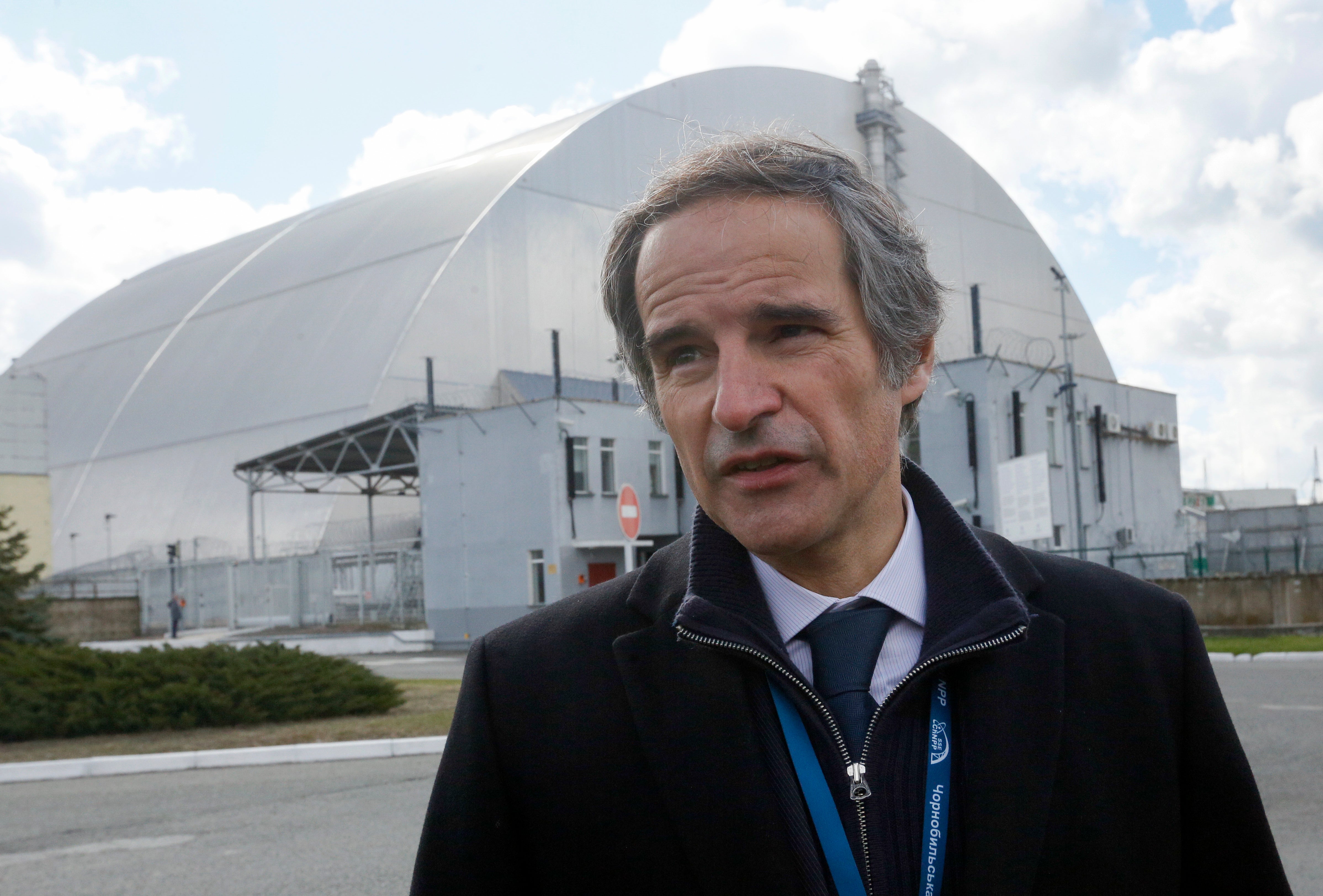Iran agrees to extend deal on cameras at its nuclear sites
The head of the International Atomic Energy Agency says Iran has agreed to a one-month extension to the deal on surveillance cameras at its nuclear sites

Your support helps us to tell the story
From reproductive rights to climate change to Big Tech, The Independent is on the ground when the story is developing. Whether it's investigating the financials of Elon Musk's pro-Trump PAC or producing our latest documentary, 'The A Word', which shines a light on the American women fighting for reproductive rights, we know how important it is to parse out the facts from the messaging.
At such a critical moment in US history, we need reporters on the ground. Your donation allows us to keep sending journalists to speak to both sides of the story.
The Independent is trusted by Americans across the entire political spectrum. And unlike many other quality news outlets, we choose not to lock Americans out of our reporting and analysis with paywalls. We believe quality journalism should be available to everyone, paid for by those who can afford it.
Your support makes all the difference.Iran and the U.N.'s nuclear watchdog agreed on Monday to a one-month extension to a deal on surveillance cameras at Tehran s atomic sites, buying more time for ongoing negotiations seeking to save the country's tattered nuclear deal with world powers.
The last-minute discussions further underscored the narrowing window for the U.S. and others to reach terms with Iran as it presses a tough stance with the international community over its atomic program. The Islamic Republic is already enriching and stockpiling uranium at levels far beyond those allowed by its 2015 nuclear deal.
Speaking at a news conference Monday in Vienna IAEA Director-General Rafael Mariano Grossi told journalists that came after a discussion with Ali Akbar Salehi, the head of Iran's civilian nuclear program. He acknowledged that challenges remain, however, as the agency still can't access images taken by its cameras.
“I’d want to stress this is not ideal,” Grossi said. "This is like an emergency device that we came up with in order for us to continue having these monitoring activities.”
Kazem Gharibabadi, Iran's representative to the IAEA, acknowledged the deal at the same time on Twitter
“We recommend the negotiating countries to seize the extra opportunity provided by Iran in good faith for the complete lifting of sanctions in a practical and verifiable manner,” Gharibabadi wrote.
Under a confidential agreement called an “Additional Protocol” with Iran, the IAEA collects and analyzes images from a series of surveillance cameras installed at Iranian nuclear sites. Those cameras helped it monitor Tehran’s program to see if it is complying with the 2015 nuclear deal.
Iran’s hard-line parliament in December approved a bill that would suspend part of U.N. inspections of its nuclear facilities if European signatories did not provide relief from oil and banking sanctions by February.
The IAEA then struck a three-month deal with Iran in February to have it hold the surveillance images, with Tehran threatening to delete them afterward if no deal had been reached.
Iran since has broken all the deal's limits after then-President Donald Trump in 2018 unilaterally withdrew America from the accord. Negotiations continue in Vienna to see if both the U.S. and Iran can re-enter the deal, which limited Tehran's enrichment of uranium in exchange for the lifting of economic sanctions.
Mikhail Ulyanov, Russia's ambassador to the IAEA, called Monday's agreement “commendable.”
“It will help maintain businesslike atmosphere at the Vienna talks on #JCPOA and facilitate a successful outcome of the diplomatic efforts to restore the nuclear deal,” he wrote on Twitter, using an acronym for the deal.
But if a deal isn't reached in a month's time — which will be after Iran's upcoming June 18 presidential election — that footage again would be in jeopardy.
Asked about that, Grossi simply said: “We are going to discuss that when we get to that point.”
___
Gambrell reported from Dubai, United Arab Emirates. Associated Press writers Nasser Karimi in Tehran, Iran, and Geir Moulson in Berlin contributed to this report.